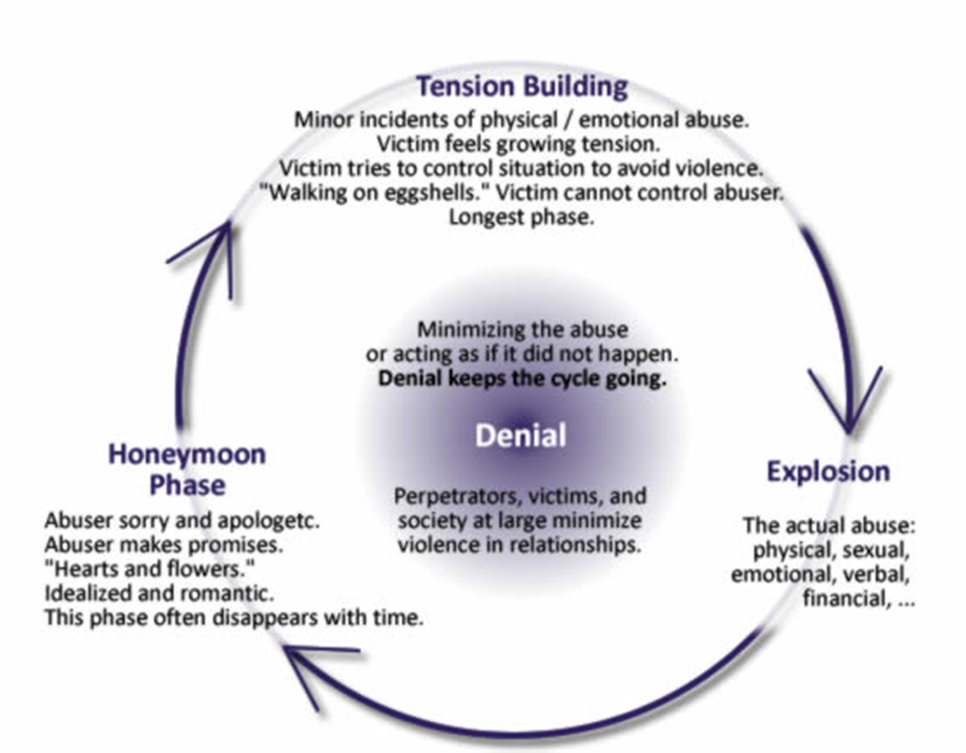
Dating violence is a pattern of behaviors in which one person uses intimidation, confusion, isolation, and fear to control the relationship.
Types of Dating Abuse
Abuse in a dating relationship can take many forms and can include a variety of behaviors:
Emotional Abuse: Name-calling, put downs, not respecting your decisions or boundaries. An abusive partner will constantly make you feel like you are wrong and everything is your fault. Plays mind games in person, with friends, or online.
Economic Abuse: Takes and controls money and/or possessions. Prevents you from getting or keeping a job. Makes you owe them for gifts.
Sexual Abuse: Makes comments about your body, controls what you wear. Coerces you into being sexual when you do not want to be (nagging, pouting, complaining, intimidating, bribing). Does not take no for an answer – Rape. Makes you send sexual pictures/videos.
Isolation: Your partner must know where you are at all times. Disapproves of your friends and family. You have no privacy – they always check your social media pages, emails, texts, pictures, and phone calls.
Double Standards: Making one-sided, hypocritical rules (“Do as I say, not as I do”). Controls all decision making in the relationship. You give in to avoid arguments.
Denial, Minimization, Blame: Denies behavior is abusive or that things didn’t happen, accuses you of overreacting, or being too sensitive. Blames all arguments and problems on you, manipulates events from your past.
Intimidation: Destroys property or possessions. Uses looks, gestures, and physical presence to inflict fear. Blocks doorways, throws things, abuses pets/animals, drives recklessly, and/or displays weapons. Obsessive amounts of texts, calls, or contact in person or online (stalking behavior)
Threats: Saying they will hurt you, others, or themselves (self-harm or suicide) if the relationship ends. Threatens future relationships and/or personal safety. Pressures you to get their way by saying they will take things away or share secrets.
Physical Abuse: Physical abuse in violent dating relationships is most often inflicted in places that others cannot see it – such as on the upper arms, back, and thighs. Physical violence usually does not occur in isolation and is used after other abusive behaviors are already present in the relationship.
Direct physical violence can include hitting, choking, pinching, slapping, spitting, pushing, or pinning down, tripping, etc. Indirect physical violence can include behaviors such as throwing things, punching walls, and/or using physical presence to create fear.
The Cycle of Abuse
Although each dating partnership is unique, there is a pattern that develops in many abusive relationships. Over time the use of abusive behaviors add tension and fear into the relationship. The abuse often escalates and cycles between moments of calm, tension building, and angry outbursts.

Experiencing Dating Violence?
Call the Minnesota Day One Crisis Line 1-866-223-1111 to speak with an advocate (interpreters are available), text 612-399-9995, or click the CHAT NOW button on this site to connect with a Day One advocate. A Day One advocate is available 24 hours a day, 7 days a week to assist you.
If you are in immediate danger, call 911.
